Moon, Mars, and Maine!
Celebrating 50 years of Apollo and Maine’s connections to space exploration
Saturday, July 20 2019 – The University of Maine
The historic first human steps on the Moon took place 50 years ago and today we dream of travel to Mars and beyond. Join us at the University of Maine on Saturday, July 20th for a celebration of human space exploration with a day of special programming on campus featuring Emera Astronomy Center, College of Engineering’s HIAD and Lunar Habitat Modules, with special activities from the Challenger Learning Center of Maine and Bangor Public Library. The day includes lunch with keynote speaker and UMaine Alumnus, Dr. George Nelson, Director of the International Space Station Technology and Science Research Office at NASA.
Tickets may be purchased online, or over the phone at 207.581.1341.
Which session/activity is right for me?
Sessions have Family and Adult activity tracks. Participants should purchase tickets based on the combination of activities in the track they wish to attend. Lunch is included in ticket purchase. Tickets are $10 per person and must be purchased in advance. Deadline for ticket purchase is July 17th.
Ticket holders will not be able to switch tracks, and children 12 and under must be accompanied by a ticket holding adult. Tickets are transferable, but not refundable.
Session 1 – 9:00 am to 1:30 pm (Check-in begin at 8:30am at Emera Astronomy Center)
Family Tickets include the planetarium program Mars 1001, hands on activities with Challenger Learning Center and the Bangor Public Library, and key note presentation by Dr. George Nelson (with lunch included).
Adult Tickets include tours and special lectures of the Lunar Habitat Module and HIAD and key note presentation by Dr. George Nelson (with lunch included).
Session 2 – 12:00 pm to 4:30 pm (Check-in begin at 11:30 am at Wells Conference Center)
Family Tickets include the planetarium program Mars 1001, hands on activities with Challenger Learning Center and the Bangor Public Library, and key note presentation by Dr. George Nelson (with lunch included).
Adult Tickets include tours of the Lunar Habitat Module and HIAD, planetarium program Mars 1001, and key note presentation by Dr. George Nelson (with lunch included).
Parking is freely available on campus at multiple locations – see campus map for options.
Events Include...
Mars 1001 planetarium program at Emera Astronomy Center
An international crew is about to embark on the first interplanetary journey in history, the first manned mission to the surface of Mars! Witness firsthand their brave attempts to put human footprints on Mars and return safely to Earth in a journey that will take 1001 days. Experience the thrill of the grandest mission of exploration ever undertaken – humans going to Mars!
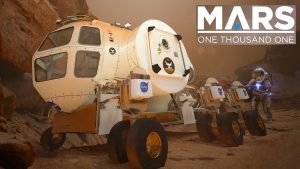
UMaine and NASA’s HIAD: Will Maine Help Land Humans on Mars?
Explore the UMaine’s contributions to the Hypersonic Inflatable Aerodynamic Decelerator (HIAD), a NASA-developed device for landing spacecraft on Mars. This activity includes both a presentation from UMaine’s lead investigator on the HIAD project and a tour of the testing facilities at the UMaine Advanced Structures and Composites Center. The presentation will give insight into the ongoing collaboration between UMaine and NASA, address how the project integrates research and education, and detail impacts on Maine and Maine students.
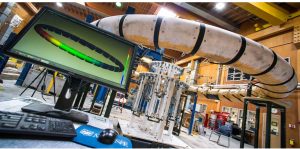
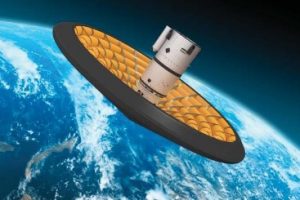
UMaine’s WiSe-Net laboratory and NASA’s Lunar Habitat Prototype
WiSe-Net lab has been conducting research on NASA’s inflatable lunar habitat since 2009. The prototype was built at NASA Johnson Space Center in Houston, Texas. Student researchers created a wireless device for detecting air leaks inside pressurized space vehicles or habitats. This can help save precious air in deep space missions, and has the potential to be used here on earth for safety at homes or inside gas and oil pipelines. This activity includes tours of the Lunar Habitat Prototype provided by students working in this laboratory and a special presentation of the Wireless Leak Detector will be presented by one of its lead researchers.
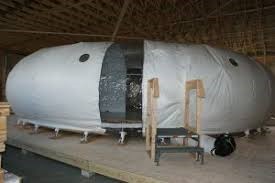
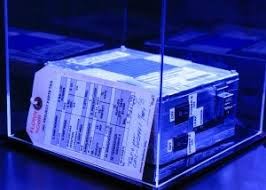
Challenger Learning Center
A variety of hands-on activities for students will be provided by Challenger Learning Center which will have a lunar sample disk on display for participants. The lunar sample disk contains three lunar rock and three lunar soil (regolith) samples collected by Apollo astronauts. Hands on activities include: Moon Phases Station, Lunar Geology Station, Lava Tube Exploration Station, and Lunar Rover Station.
Students will explore the phases of the Moon, control a robot arm to pick up a lunar rock, explore a lava tube by a rover using cones and a Sphero Robot, and assemble a digital lunar rover using block coding to navigate the surface of the Moon to a designated location.





This program is funded in part by:
- Cultural Arts/Distinguished Lecture Series Fund
- University of Maine College of Liberal Arts and Sciences, Events and Experience Fund
- University of Maine Provost’s Office
- University of Maine WiSe-Net Lab
- University of Maine College of Engineering
- Sigma Xi Scientific Research Society, Phi Kappa Phi Honor Society, and Maine Space Grant Consortium.



